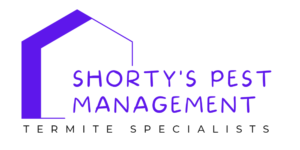So many descriptions and where to start.
A General Pest Treatment can be known by many names. You may have heard the terms Annual Pest Treatment, General Pest Treatment, Annual Spray, General Spray, Pest Spray, General Pest Spray – the list goes on. You will be surprised to learn that this does not mean the same thing for each company and there is no standard to what is covered, what products are used or what pests are targeted.
If you are shopping around for the best price, ask your self does the quality of service match the price I am paying? Ask the company.
- What pests are covered?
- How often should I have a General Pest Treatment?
- How do you do the General Pest Treatment?
- What chemicals do you use?
- Are they safe for children and pets?
- What is the exclusion period (there will ALWAYS be a period)
- What is the warranty?
At Shorty’s Pest Management we offer a General Pest Treatment. We recommend this treatment occur done every 12 months. This treatment covers standard Cockroaches, Ants, Spiders and Silverfish. It includes a full internal and external spray treatment, dusting the roof (if accessible) and external weep holes and placing gel baits in the kitchens. We use water-based produces that are safe for children and pets if the exclusion period is adhered too. The exclusion period is usually 20-40 minutes until the chemical is dry – however the technician will advise on the day after assessing the environmental conditions.
We are so confident in our General Pest Treatment that we offer a 12 month call back warranty on Cockroaches and Silverfish and a 6-month warranty on Ants and Spiders as long as the terms of the warranty are met. Now this does not mean that we guarantee that no pests will enter your home – that is impossible to stop. However, we guarantee that they will either die or move on quickly.
So that is a General Pest Treatment and when you are looking around know the value of the quality you are receiving by asking the right questions.
For more information on Residential Pests please check out our Residential Pests page.


